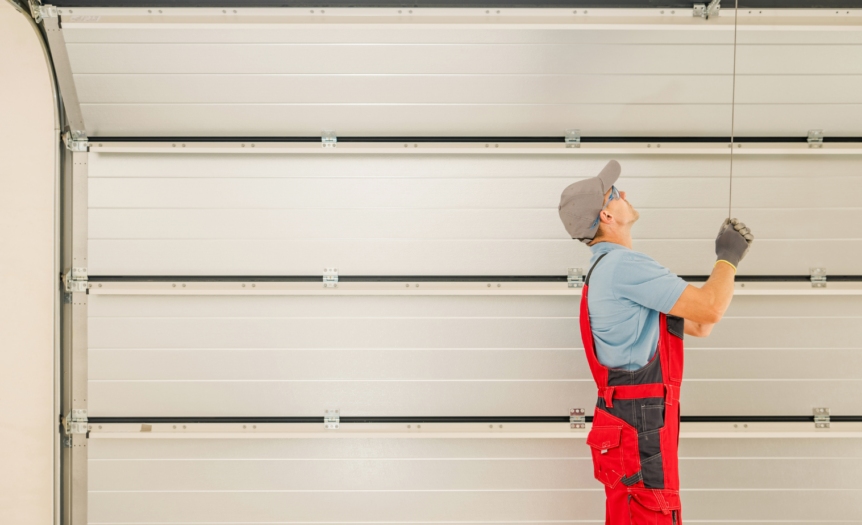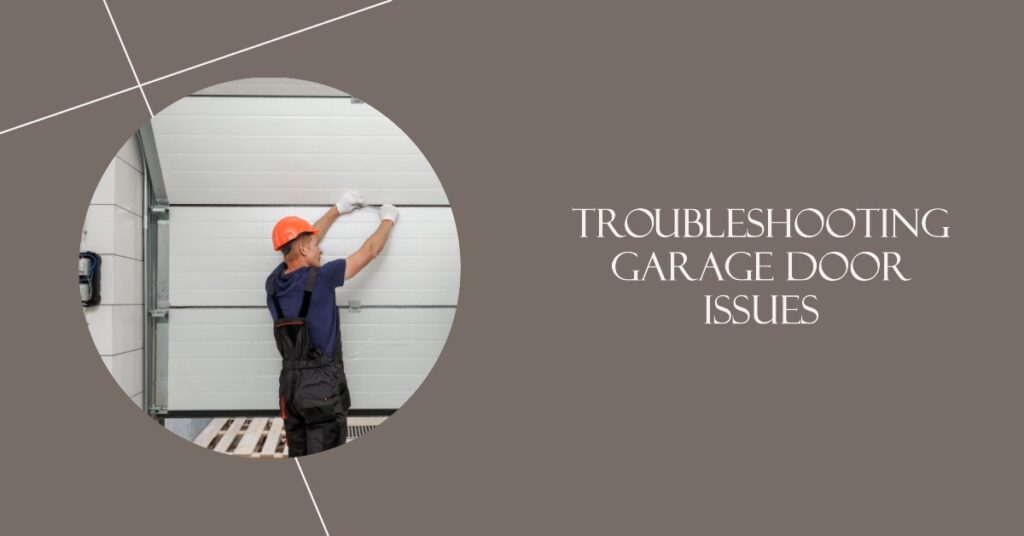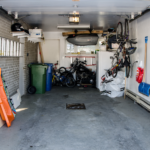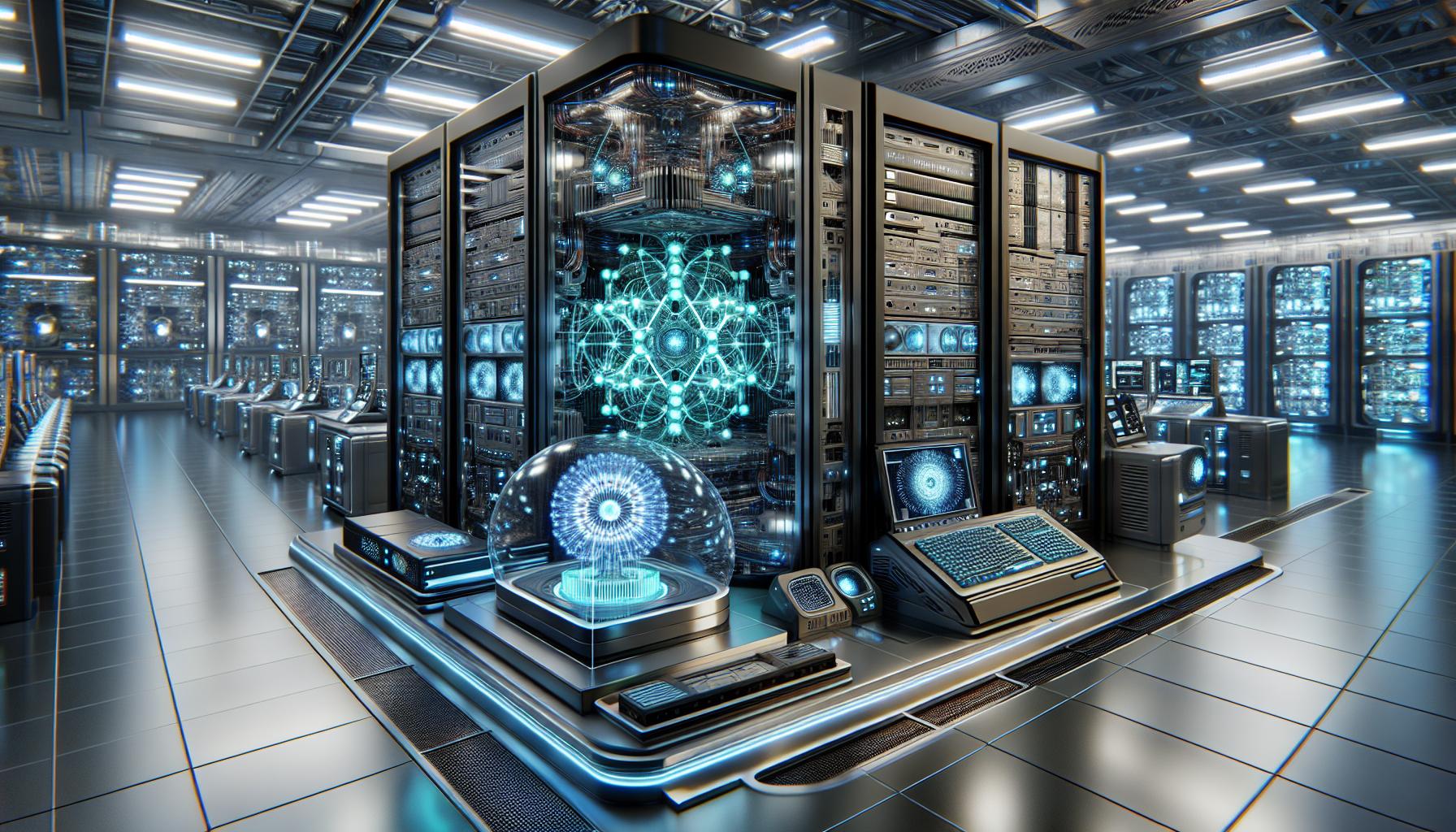There’s nothing more frustrating than trying to leave or enter your garage, only to find that your garage door refuses to close. Not only is this an inconvenience, but it can also raise safety concerns for your home and belongings.
So, why won’t your garage door close? In this blog post, we’ll explore some of the most common reasons behind this bothersome issue – from sensor blockages and dead batteries to mechanical problems – as well as troubleshooting tips you can use before calling in the professionals.
Key Takeaways
- A garage door that won’t close is a common problem caused by sensor blockages, malfunctioning openers or remotes, broken springs or cables, obstructions blocking the door, and misaligned tracks.
- Homeowners can troubleshoot this issue by checking and cleaning the sensors, resetting the opener, inspecting and replacing damaged components like springs or cables or removing any obstructions.
- Regular maintenance checks are vital to ensuring optimal performance of your garage door system and preventing accidents from occurring. Call a professional for help if DIY repairs don’t solve the issue or when safety concerns arise such as unusual sounds during operation.
Common Reasons Why A Garage Door Won’t Close
Garage doors not closing can be caused by various factors, such as sensor misalignment/blockage, malfunctioning openers or remote controls, broken springs or cables, obstructions blocking the door, and misaligned tracks. To ensure easy access and maintenance in such situations, consider installing a BA-DW-5040 Flush with Drywall Bead Flange Access panel near your garage door mechanism. This access panel provides a convenient and concealed way to access the inner workings of your garage door for troubleshooting and repairs, ensuring a smooth and functional garage door operation.
Sensor Blockage Or Misalignment
One of the most common reasons why a garage door won’t close is due to sensor blockage or misalignment. Garage doors are equipped with safety sensors, also known as photo eye sensors, that detect obstructions in the path of the door and prevent it from closing on objects or people.
A blocked photo eye sensor can be caused by dirt, debris, or even spiderwebs covering one or both of the lenses. Misaligned sensors occur when one or both units have been inadvertently knocked out of position, interrupting their line-of-sight connection.
In either case, this will cause the garage door opener to assume that there is an obstruction in its path and prevent it from closing. To resolve this issue, carefully inspect each sensor for any signs of blockage and clean them if necessary.
Furthermore, ensure that they are properly aligned by checking if their LED lights are solidly lit; flashing lights indicate misalignment which requires adjusting until they regain a steady glow.
Malfunctioning Opener Or Remote Control
Another common reason why a garage door won’t close is due to a malfunctioning opener or remote control. If the opener or remote fails to send the signal to close the door, it could be due to dead batteries in either device or an issue with the transmitter itself.
Alternatively, there may be electrical issues preventing communication between devices. In some cases, simply resetting or reprogramming the remote and/or opener can solve this problem.
However, if these solutions fail, replacement of either device may be required.
Broken Springs Or Cables
If your garage door won’t close, you might have broken springs or cables. These are important components that help balance the weight of the door as it opens and closes.
One sign of a broken spring is if your garage door appears heavy to lift manually. You may also hear a loud noise when attempting to open the door using your remote control or wall switch.
A snapped cable can cause similar issues and could even result in further damage to other parts of the system if not addressed promptly by a professional technician.
Remember to schedule regular maintenance checks for your garage door system since worn-out springs or cables can lead to bigger problems like malfunctioning safety features or even total failure of the entire mechanism over time.
Obstruction Blocking The Door
One of the most common reasons why a garage door won’t close is due to an obstruction blocking the door’s path. This can be anything from a piece of debris on the tracks to something as simple as a child’s bike left in front of the door.
When an obstruction is present, it prevents the safety sensors from sending signals to each other to let them know that it’s safe for the garage door to close.
To solve this problem, inspect your garage area for any obstructions in the way of your garage door. Make sure that there are no items or debris on your tracks or near your safety sensors, which could be causing interference with their signals.
Misaligned Tracks
Misaligned tracks are another common reason why a garage door won’t close. The metal tracks that guide the garage door can get bent or knocked out of alignment over time, preventing smooth movement and causing the door to get stuck.
To troubleshoot this issue, it’s important to visually inspect the tracks for any signs of misalignment or damage. If there are gaps between the rollers and rails or if they appear twisted, it’s likely that you have a track alignment issue.
Regular maintenance checks conducted by an experienced technician can catch misaligned tracks before they become major problems.
Troubleshooting Tips To Fix A Garage Door That Won’t Close
To fix a garage door that won’t close, homeowners can try checking the sensor alignment and cleanliness, resetting the opener or remote control, inspecting and replacing broken springs or cables, removing obstructions, and adjusting the tracks.
Check Sensor Alignment And Cleanliness
One of the most common reasons a garage door won’t close is due to blockage or misalignment of the photo-eye sensors. These sensors are responsible for detecting any obstacles in the path of the garage door and preventing it from closing if anything is detected.
To fix this issue, first, ensure that nothing is blocking the sensors’ line of sight and clean them if they’re dirty.
Regular maintenance checks can prevent future issues with your garage door. Inspect your garage door on a monthly basis for proper functioning, cleanliness, obstructions, and signs indicating that repair may be necessary (like fraying cables, worn pulleys).
Reset The Opener Or Remote Control
If your garage door won’t close and you suspect that the cause is a malfunctioning opener or remote control, try resetting it first. Check if the batteries in your remote are dead or low, which can prevent it from sending a signal to the opener.
To reset the opener, locate its power source and unplug it for at least 30 seconds before plugging it back in. This resets its programming and may help resolve any issues causing the door not to close properly.
Try operating your garage door again using both the remote control and wall-mounted buttons to see if this has fixed the problem.
Regular maintenance of your garage door system can prevent malfunctioning openers or remotes from occurring regularly so ensure that all parts are well-maintained on time.
Inspect And Replace Broken Springs Or Cables
Broken springs or cables are another possible culprit if your garage door won’t close. These components play a crucial role in lifting and lowering the door, so any damage can result in malfunctioning operation.
To fix this issue, you’ll need to inspect the springs and cables for damage and replace them if necessary. It’s important to note that attempting to fix these components on your own can be dangerous due to the high tension involved.
We recommend calling a professional garage door technician who has specialized tools and experience with these types of repairs.
Remove Obstructions
Removing obstructions is an essential step in troubleshooting a garage door that won’t close. Small items such as toys, boxes, or trash cans can easily block the path of the garage door and prevent it from closing properly.
Ensure there are no large objects (such as furniture) blocking the sensors at either side of the door frame. Remember also to check above and below ground level for any other types of obstruction that might be interfering with your garage door’s closure mechanism.
Adjust The Tracks
Misaligned tracks can also cause your garage door to not close properly. If you notice that the door is crooked or rubbing against the tracks, it’s time for an adjustment.
To do so, use a level tool to ensure that both tracks are parallel and at the same height. Then, loosen the screws holding the track in place and adjust it accordingly before tightening them back up.
Ignoring this problem can lead to more damage down the line and even put safety at risk since an unbalanced door can suddenly come off its track while opening or closing.
When To Call A Professional For Help
If you encounter complex repairs, safety concerns, or unsuccessful DIY repairs, it’s crucial to call a professional for help with your garage door issues.
Complex Repairs Or Replacements
If simple troubleshooting tips do not fix the garage door issue or you are not comfortable performing them, it may be time to call in a professional. Complex repairs such as fixing broken springs, repairing misaligned tracks, or replacing the entire door opener require specialized knowledge and equipment.
Safety concerns also arise when dealing with heavy doors and moving parts.
Professional help is also beneficial if your warranty or insurance coverage includes garage door repairs. DIY repairs can void manufacturer warranties and cost more in the long run if they cause additional damage.
Safety Concerns
It is essential to ensure that your garage door operates correctly and safely. If you notice any unusual sounds, hesitations, or jerky movements while opening or closing the garage door, it is essential to call a professional immediately.
Additionally, if you have an older model of the garage door opener or safety sensors that no longer meet current safety standards, it may be time for an upgrade. Modern models come with advanced features such as rolling codes that change every time you use the remote control to prevent unauthorized access.
Regular maintenance checks are also crucial in ensuring optimal performance of your garage door system and preventing accidents from occurring.
Warranty Or Insurance Coverage
In some cases, a garage door that won’t close may be covered by warranty or insurance. If you are experiencing issues with your garage door and have a warranty or insurance policy in place, it’s worth checking to see if the problem is covered before attempting any repairs yourself.
It’s important to note that attempting DIY repairs on something that is still under warranty could void the coverage. If you’re uncertain whether your repair needs fall within the scope of your policy, contact your provider for guidance.
DIY Repairs Are Unsuccessful
If you’ve attempted some of the basic troubleshooting tips like cleaning and aligning sensors, resetting the opener or remote control, and adjusting tracks without success, it may be time to call a professional for help.
Complex repairs or replacements should always be done by an experienced garage door technician for safety reasons.
Some issues with the garage door may require more technical expertise and specialized tools beyond what’s readily available for most homeowners. It’s also important to note that attempting extensive repairs on your own could potentially make matters worse instead of fixing them.
Preventive Measures To Avoid Future Garage Door Issues
To avoid future garage door issues, make sure to conduct regular maintenance checks, keep the garage door area clean, use the door properly, and consider upgrading to a newer model.
By taking these simple steps, you can save yourself from potential headaches and costly repairs down the road.
Regular Maintenance Checks
Regular maintenance checks are crucial in preventing future garage door issues. Routine inspections and tune-ups can help identify any potential problems before they become major issues that require costly repairs or replacements.
Additionally, keeping the area around your garage door clean can also help prevent potential issues. Debris buildup on the tracks or photo eye sensors can cause malfunctions that prevent the door from opening or closing properly.
By performing routine checks and keeping everything clean and unobstructed, you can avoid many common garage door issues altogether.
Keep The Garage Door Area Clean
To avoid future garage door issues, it is essential to keep the area around your garage door clean and free of debris. Dirt, dust, leaves, and other clutter can get stuck on tracks and rollers or block photo-eye sensors.
Regularly sweeping or vacuuming the floor and wiping down the tracks with a damp cloth can help prevent these problems.
Moreover, regular maintenance checks from a professional can ensure that all mechanical components of your garage door are functioning correctly. Proper lubrication of moving parts will also reduce wear and tear on springs and cables over time.
Taking care of these small details will not only improve your garage door’s overall lifespan but also save you money in costly repairs down the line.
Use The Garage Door Properly
Proper use of the garage door is essential to avoiding issues with its functionality. One common mistake people make is trying to open or close the door manually while it’s in operation.
Not only can this damage the door, but it can also pose serious safety risks.
Another important factor is to refrain from leaving items under or near the garage door when opening and closing it. An obstacle in its path can cause significant damage not only to the garage door but also to anything in its way.
Consider Upgrading To A Newer Model
Upgrading to a newer garage door model can be a smart decision if you’re struggling with constant issues or your current door is outdated. Newer models often come equipped with better safety features, improved energy efficiency, and updated technology for smoother operation.
For example, some modern garage doors feature Wi-Fi connectivity that allows remote control access from smartphones or other devices. This can make monitoring and controlling the door’s operation more convenient and efficient than ever before.
However, it’s essential to choose the appropriate type of garage door for your specific needs and budget. Different materials like wood or steel offer varying levels of durability and insulation properties that may affect their longevity over time.
Conclusion
In conclusion, a garage door that won’t close can be frustrating and inconvenient. However, it’s essential to identify the root cause of the issue to prevent potential safety hazards or further damage.
Simple troubleshooting tips like cleaning sensor eyes or replacing dead remote batteries may fix the problem, but hiring an expert is recommended for more complex repairs or replacements.
Regular maintenance checks and responsible use of your garage door can prevent future issues from arising.
FAQs:
1. What are some common reasons why a garage door won’t close?
Common reasons for a garage door not closing include malfunctioning sensors, misaligned tracks or rollers, damaged springs or cables, and problems with the opener.
2. How can I troubleshoot my garage door that won’t close?
Start by checking if there is any obstruction blocking the pathway of the garage door. Then check the alignment of sensors and ensure that they are clean and properly connected. If these steps do not work, consult a professional technician who can diagnose and fix any underlying issue.
3. Can weather affect my garage door’s ability to close properly?
Yes, extreme temperatures such as heavy rain or snowfall may cause the moving parts in your garage door system to expand and contract which can lead to issues like warped tracks or frozen mechanisms preventing closure.
4. Is it safe to attempt fixing my own garage door that won’t close?
It is generally not recommended for individuals without proper training or experience to attempt repairing their own garage doors. A malfunctioning mechanism could pose serious risks such as causing injury or damage property if done incorrectly, so it’s best left up to professionals experienced in diagnosing and fixing these types of issues safely while minimizing risk to people & valuables around them..








